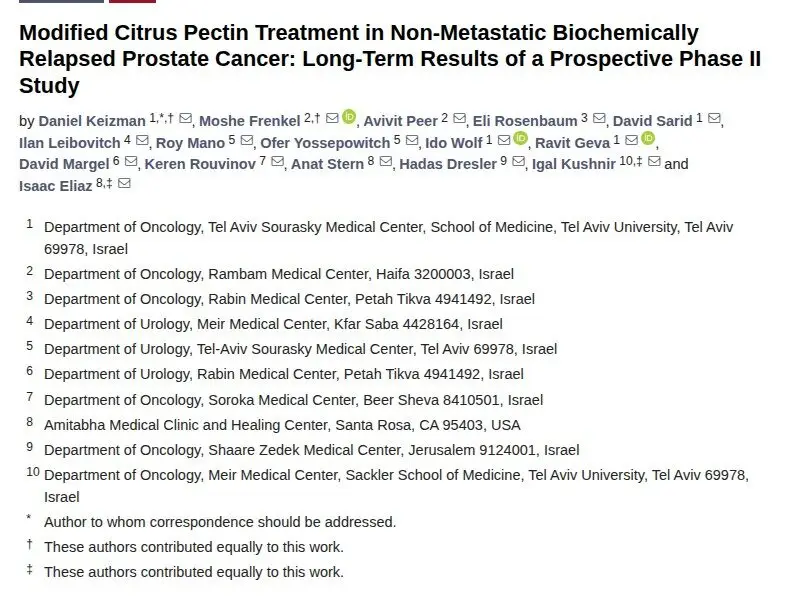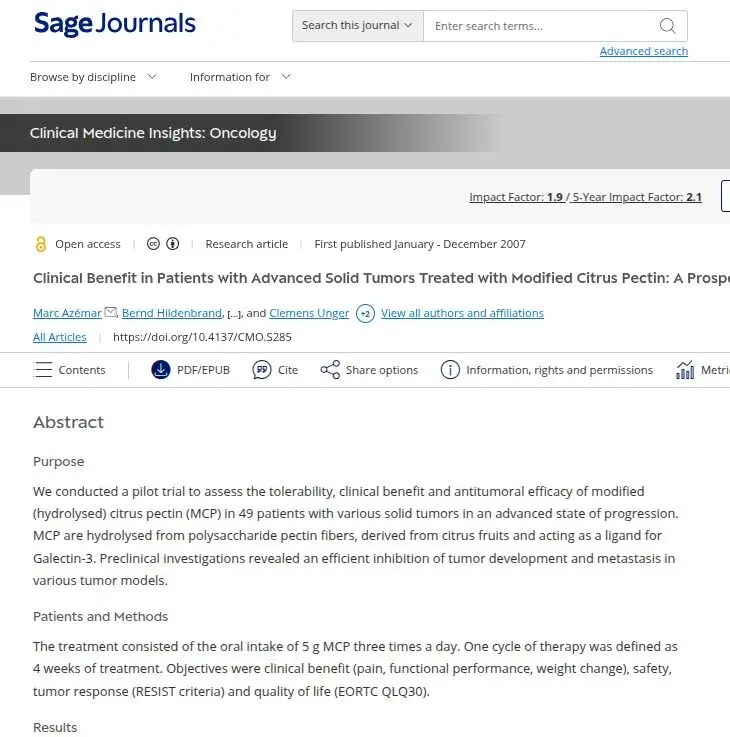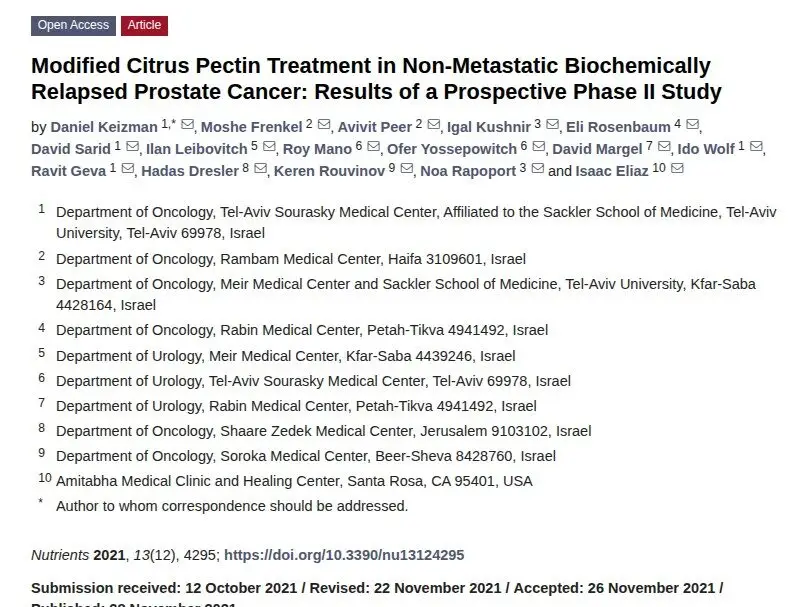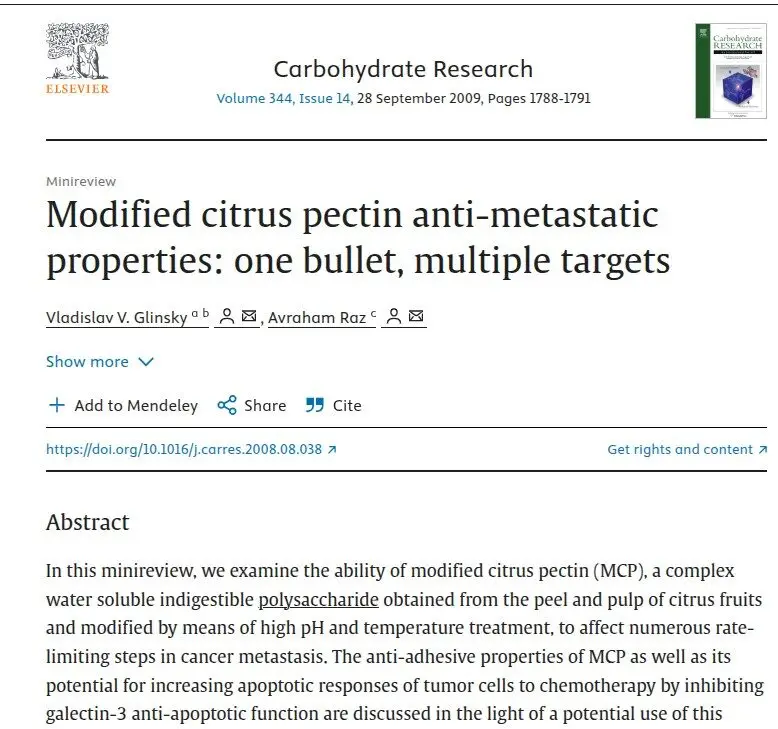Modified Citrus Pectin is a soluble fiber derived from white pulp or inner peel of citrus fruits. They do not contain furocoumarins, which lead grapefruit to interfere with oncology drugs. Evidence from cancer trials has been emerging in oncology, particularly for prostate cancer. Branded products such as Pectasol are reported successful at phase II. The slowing of prostate disease rates is less than class leading hormone targeting drugs, but with none of the side effects.
There are additional small trials with fascinating positive evidence in late stage breast, colorectal , lung and other cancers where around 20% of advanced stage patients see measurable improved outcomes following relapses of oncology treatments. Typical dosages can be up to 5g three times daily. Just like newer oncology drugs, citrus pectin needs targeting and will not work for all, but in comparative terms there no side-effects. These trials need broader replication to help understand which patients can benefit. The direct actions of citrus pectin are inhibiting galectin-3 protein signaling pathway. Gal-3 expression is elevated in tumor tissues both primary and at metastatic sites. Its strongly associated with cancers in the digestive system – gastric, pancreatic, colorectal. But also melanoma, breast, ovarian, prostate, lung, head and neck cancers. In kidney cancer too, most notably the metastatic phase.
Along with its need for extra sugars, proteins and lipids, cancers also use high amounts of metals to fuel their growth including copper and iron. Indeed, cancer activity includes upregulating the circulating levels of these metals, so it can store them in the tumor microenvironment. Citrus Pectin can reduce levels of heavy these metals including lead, mercury, copper. But it does so without removing essential minerals. Both alone and in combination with alginates from brown seaweeds for instance branded product PectaClear. These metals are shown increase progression in many cancers, often in combination with reduced selenium and zinc. Alginates can reduce zinc so be sure to maintain zinc with supplements too.
The inhibition of aberrant galectin-3 activity make it probable that citrus pectins benefits include reduced metastatic spread, in particular used in combination with oncology treatments. Further evidence is needed here for confirmaion.






